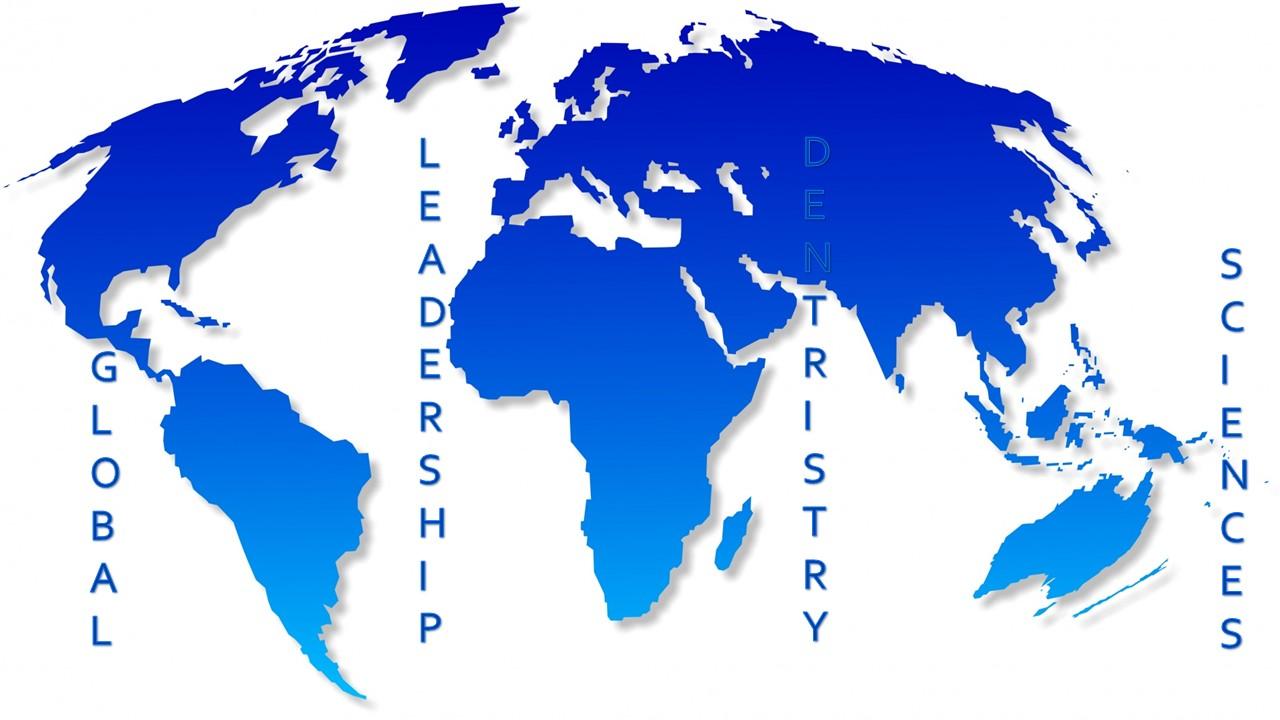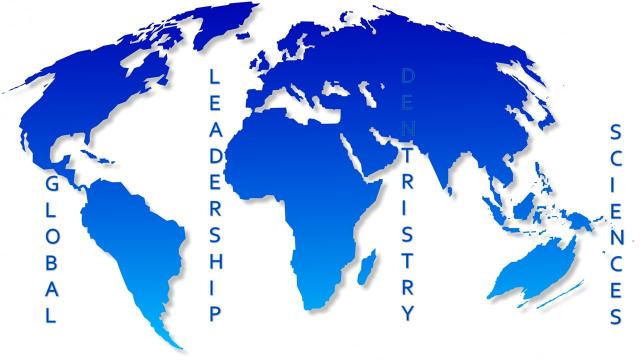

Global Leadership Dentistry & Sciences GLDS ATLAS
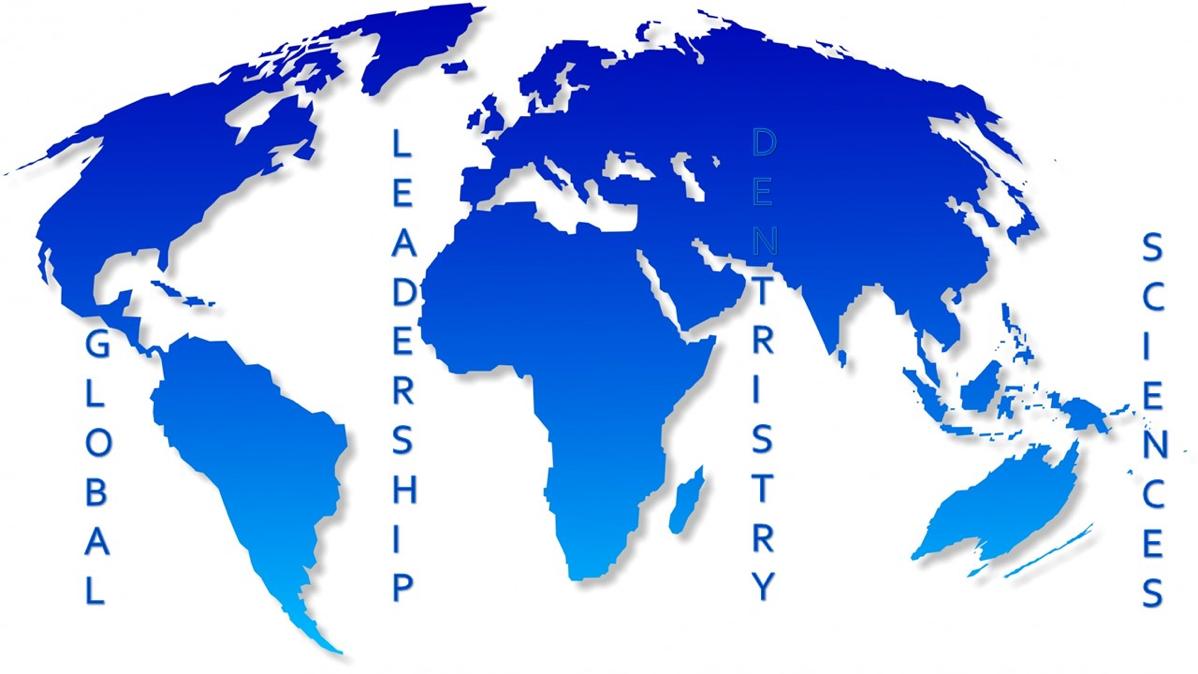
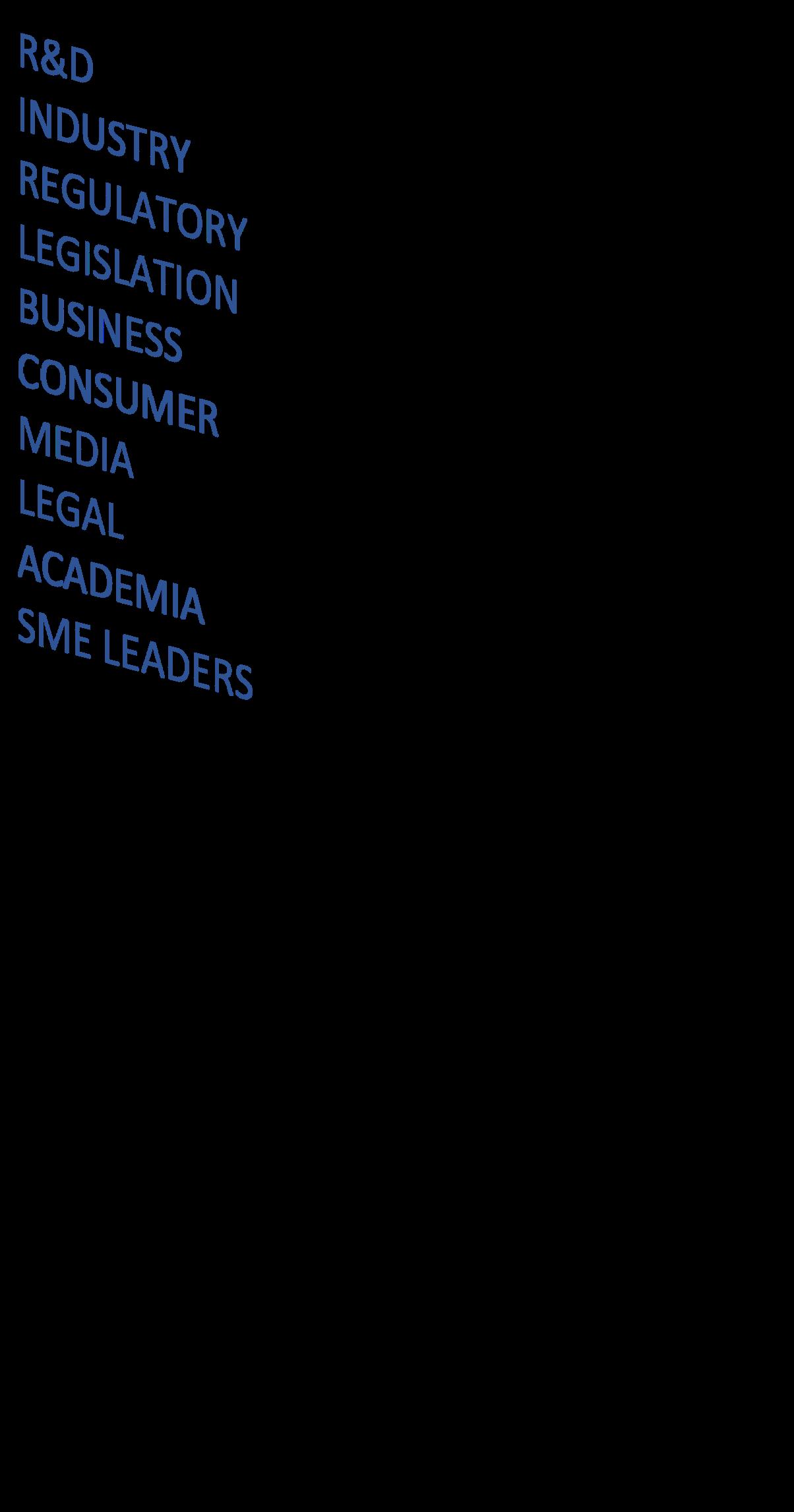

FROM THE FOUNDER
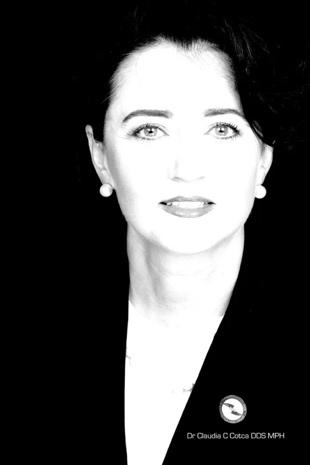
CLAUDIA C COTCA DDS MPH
FOUNDER, PRESIDENT & CEO
GLOBAL HEALTHCARE EXPERT
LASERS, DENTISTRY & TOXICOLOGY
ADVANCED ORAL SYSTEMIC CLINICAL PROTOCOLS
HEALTHCARE TECHNOLOGY TRANSFER ANALYST
INDUSTRY STANDARDS & LEGISLATIVE POLICY EXPERT
Since 2000 while a DDS Candidate student at the University of Michigan School of Dentistry, Dr. Claudia C Cotca distinguished herself as a unique clinician with heightened appreciation for excellence in clinical skills and equally devoted in taking initiatives and representing dentistry internally and externally of the dental sector.
Dr. Claudia C Cotca launched her career in Washington DC while a DDS Candidate student in 2001 through the award of ADA/ASDA National Policy Extern in Washington DC, which was only the springboard of her interaction and input in legislative activity with the United States Congress.
Dr. Claudia C Cotca found equal effective success in working within and positioning dentistry and oral health sciences in various sectors which intersect with oral health and practice, in private and public health sectors, including investment venture capital and private equity groups, public affairs groups, academic groups, industry corporate groups, R&D groups, government groups and nongovernmental organizations, and cross sector expert organizations.
Dr. Claudia C Cotca has served on many national and international boards, including the American Dental Association Board & ADA Political Action Committee & Grassroots Legislative Network, American Diabetes Association, American Arthritis Foundation, American Academy of Oral Medicine, National Institute of Standards & Technology- Dentistry, International Standardization Organization- Dentistry, and Academy of Microscope Enhanced Dentistry, among many others.
Dr. Claudia C Cotca is a natural leader and she particularly takes extra attention to inspire and support the next generation of experts as she holds special sensitivity for marginalized or unsupported groups with value substance and potential. Included in her many initiatives rests the global platform Global Leadership in Dentistry & Sciences: Past, Present & Next Generations and the global and educational resource innovation network on lasermicrosurgery(TM) from @dclaserdentist, among others.
Dr. Claudia C Cotca remains available for cross sector leadership opportunities as for speaking engagements on leadership in dentistry and oral health sciences, biotechnology and oral systemic healthcare sectors intersect in United States of America and globally.

EDITORIAL TEAM
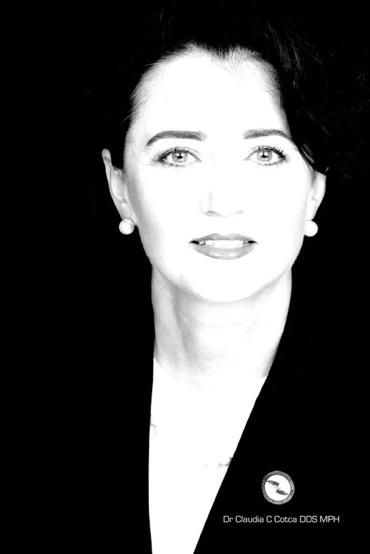
Prof. Claudia C Cotca, DMD, MPH Editor-in-Chief
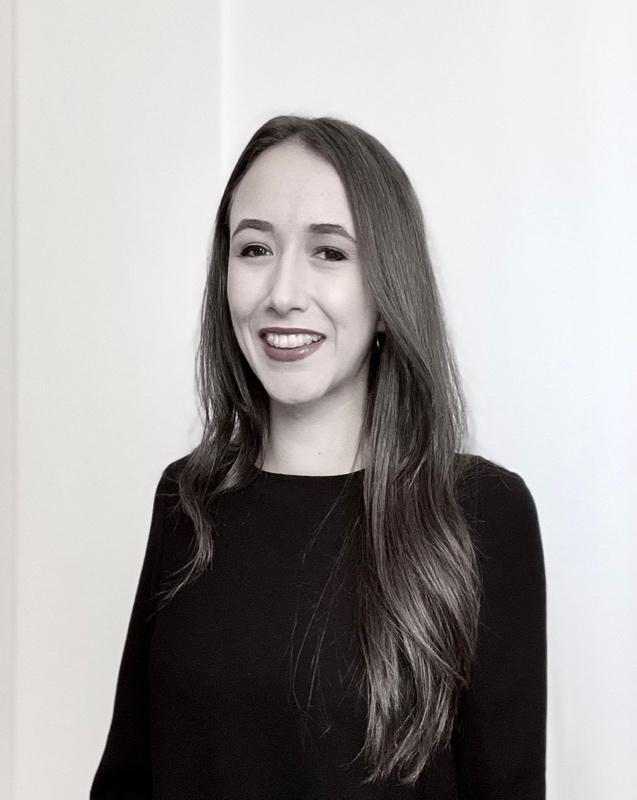
Christa Serban, DMD Editor-in-Chief
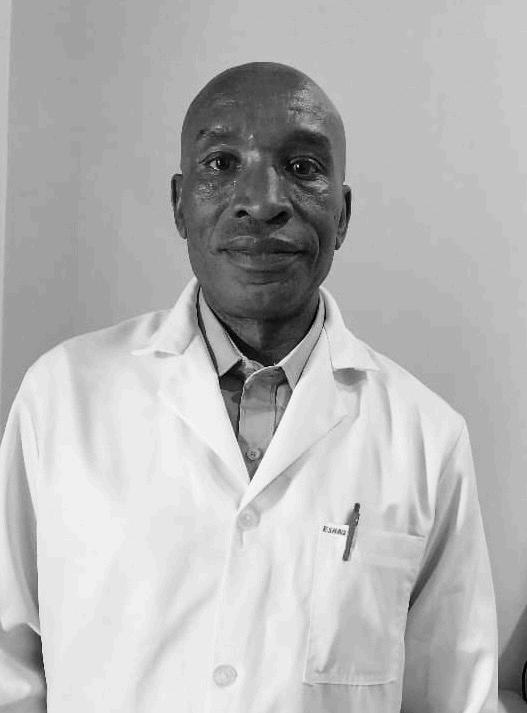
Godfrey Kwizera, DMD, MPH Atlas Co-Director
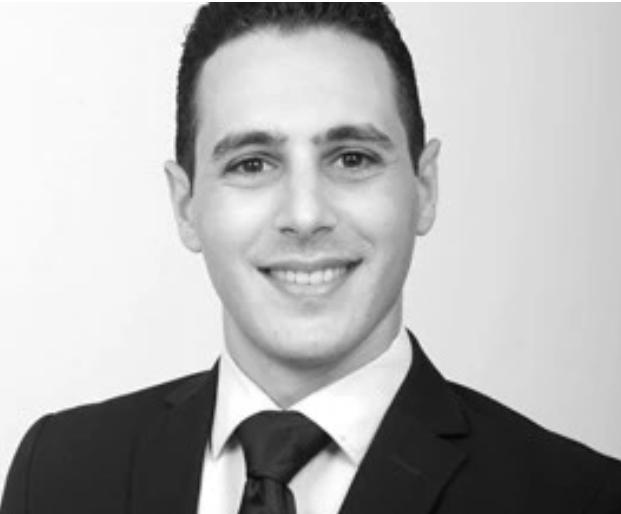
Enea Collaku, DMD Candidate Atlas Co-Director
Georges El Najjar, DMD, MSc President GLDS Executive Committee
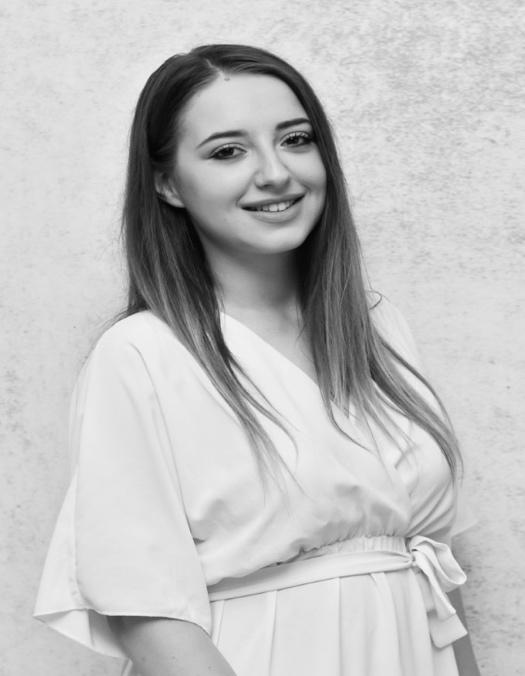
Milica Kolic, DMD Candidate Social Media Director

SPONSORS & PARTNERS
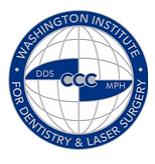




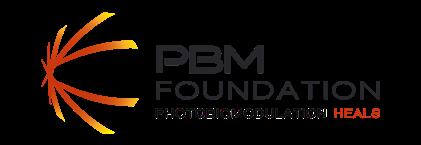
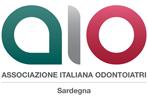

Country Report: Belgium
Country Report Title: Targeting The Young Future Dentists In Belgium
Country Ambassador: Maria Hage, DDS
Contributor: Maria Hage, DDS
Introduction: Belgium has a universal healthcare system that covers a significant portion of the dental care costs. The government ensures that basic dental treatments such as check-ups, Xrays, fillings, RCTs and extractions are accessible to all residents (fulfilling some conditions and age range). However, the extent of coverage can vary depending on the type of treatment and insurance plan. Basic treatments are usually covered, but more complex procedures such as prosthodontics treatment, implant placement and other specialty treatments may require additional payments. Therefore, many Belgians purchase a complementary insurance to cover the “non covered fees”. It’s important to be aware of the fact that the Belgian dental care system emphasizes on preventive care, so many insurance companies refund better patients who keep up with their regular check-ups than those who don’t.
Credential & Affiliations: In Belgium, a student must pass a preliminary exam and must complete a rigorous 5-year training program before they can legally practice. Dentists have then the option to become a general dentist or to pursue further specialization in areas such as orthodontics and periodontics. My credentials are Master in Dental Sciences (Ongoing)University of Liege -Belgium, Bachelor in Dental Sciences (2022) - University of LiegeBelgium, Doctor of Dental Surgery DDS (2021) – USJ - Lebanon
Scope & Mission: My aim for 2024 is to introduce GLDS specifically to young dental students, still in university and to sharpen their mind. In fact, patients in Belgium have the freedom to choose between public and private dental clinics. Hence, public clinics, often associated with hospitals, provide subsidized services, while private clinics offer a wider range of treatments and amenities. Despite the strengths of the dental healthcare system, there are still challenges in Belgium such as disparities in access to care among different socioeconomic groups and regions. Additionally, some patients may face long waiting times for certain treatments, particularly in the public sector. This leads to a backlog of less fortunate patients coming to the student’s clinic who don't necessarily have the financial means to implement the ideal treatment plan. For this reason, my aim would be to highlight via GLDS how to elevate the standards of dental care in Belgium in order to compete worldwide. It is important to insist on the fact that one should aspire not to diminish the quality of dental care and to ensure that dental professionals are equipped to meet the evolving needs of diverse populations.
Past, Present, Next Generations: Belgium's dental healthcare system offers comprehensive coverage, high-quality care, and a choice between public and private providers. Overall, the GLDS platform has the potential to serve as a valuable resource for dental and future dental professionals in Belgium, supporting their development, fostering collaboration, and driving innovation in the dental care system. By leveraging the power of technology and global connectivity, GLDS can contribute to the continuous improvement of dental care delivery and ultimately enhance the oral health of the population in Belgium by helping them stay updated on the latest advancements and techniques in the field and showcasing research initiatives.

Country Report: Cameroon
Country Report Title: Cameroon
Country Ambassador: Ngangeh Sinthia Ngwansi, DDS Candidate
Contributor: Ngangeh Sinthia Ngwansi, DDS Candidate
Introduction: The Cameroonian section of this organisation is headed by Ngangeh Sinthia Ngwansi, a 7th year Dental Medicine Student. Having as passion Research with research interests in Preventive Dentistry, Nutrition in dentistry, orthodontics, microbiology in dentistry and public health.
The section’s focus is in line with the vision of the organisation laying more emphasis on building quality individuals inclined towards the awareness and implementation of the role of Dentistry and Medical Sciences in improving and optimising healthcare delivery in Cameroon.
Credentials and Affiliations: The GLDS Cameroonian section is made up of dental healthcare personnels ranging from practicing dentists, academics and dental students.
We are in consonance and currently extending our partnerships with the following: Cameroon Dental Students Association (CADSA), Cameroon Medical English Speaking Student Association (CAMESSA), National Order of Dental Surgeons of Cameroon (NODSC).
Scope and Mission: We are committed to bringing a deep awareness of leadership in dentistry and this is achieved through training of the next generation of leaders in healthcare community through symposiums, networking and mentorship, real time collaboration for impact in the healthcare sector.
Past, Present, Next Generations
The healthcare sector of Cameroon has had its limitations in jurisdictional governance due lack of geo-position access to interdisciplinary resource interactions. Leadership in the healthcare sector has been mainly represented by non-experts which has led to less effective progress in the sector causing a concern for its deterioration in the last decades.
An additional concern accentuates the deficiency of available expert subject matter leaders due to migration mass exodus of subject matter healthcare experts. Amidst everything Cameroon still boasts of its excellent professionals still willing to improve the system if given the opportunity. The current generation of healthcare students are being empowered through a change of mind and awareness of opportunities found in the system. Intersecting their optimism and skills would expect a significant change.
GLDS provides the informational and technical support necessary for the improvement of the leadership abilities of the willing healthcare experts, in-training and active professionals, to match other jurisdictions standard curriculum preparation and treatment care.

Country Report: Nigeria
Country Report Title: Nigeria
Country Ambassador: Okereke Promise Udohchukwu, BDS
Contributor: Okereke Promise Udohchukwu, BDS
Introduction: The Nigerian section of this organisation is headed by Okereke Promise Udohchukwu, with credentials as Bachelor of Dental Surgery (BDS), bioethicist and researcher, with research interests in Preventive Dentistry, Dental Anaesthesiology, Ethics and Public Health and Oncology.
The section’s focus is in alignment with the consensual goal of the organisation with a broader vision to breed formidable individuals inclined towards implementing the role of Dentistry and Medical Sciences in improving and optimising healthcare delivery in Nigeria and to improve its position in regional and global collaboration.
Credentials and Affiliations: The GLDS Nigerian section is made up of dental healthcare personnel ranging from practicing dentists, academicians and dental students.
We are in consonance and currently extending our partnerships with the following: Nigerian Association of Dental Students (NADS), Youth Health Action Network (YOHAN Africa), Federation of African Medical Students’ Associations (FAMSA), African Dental Students’ Associations.
Scope and Mission: We are committed to the impacting on and training of the next generation of leaders in healthcare community through symposiums, networking and mentorship, real time collaboration for impact in the healthcare sector.
Past, Present, Next Generations: The healthcare sector of Nigeria has quite had its own fair share of poor outcomes with very poor allocation given to it in the national budget. Meanwhile, it has been tried its best to maintain optimum services to and access by the populace which has seemed to be overwhelming due to the poor focus and resources open to it. It has been laden by the exodus of healthcare professionals to international jurisdictions. However, Nigeria depends on its healthcare professionals to make a stance, take risks to change the current progress blocks, and establish a strong healthcare infrastructure sector.
GLDS provides the technical support for improvement in leadership abilities of Nigeria healthcare sector experts to become competitive with regional and global healthcare counterparts.

Country Report: Uganda
Country Report Title: Uganda
Country Ambassador: Godfrey Kwizera, BDS, MPH
Contributor: Godfrey Kwizera, BDS, MPH
Introduction: Uganda has a population of approximately fifty million people, served by about 350 Dental Surgeons and 2000 Public Health Dental Officers. 80% of these dental professionals work in urban areas. 70% of the population live in the rural areas. There are four universities which train dental surgeons and four other institutions training public health dental officers.
Credentials & Affiliations:
Godfrey Kwizera, BDS, MPH
Lecturer, Mbarara University of Science and Technology Board Chair, Build Your Smile Dental Foundation, Uganda. WHO, FDI, IADR
Scope & Mission: Providing the highest level of dental/oral health services to all people in Uganda through promotive, preventive, curative, palliative and rehabilitative services at all levels.
Past, Present, Next Generations:
My country’s direction led by the existing healthcare leaders
1.In the process of updating the oral health policy
2.Diversifying from clinical based care to community outreach services.
3.Integration of oral health services into other health programs.
4.Training more specialists at postgraduate level for providing curative services and training.
My country’s available unique resources.
1.Availability of trained oral health professionals at diploma and bachelor’s degree levels.
2.Sufficient health facilities at regional, district and community levels.
3.Policy making decentralization at the district levels
4.Existence of schools training both dental surgeons and public health dental officers.
Requirements:
Oral epidemiologists, clinical Dental specialists and well facilitated dental training institutions.
GLDS can support my country’s initiatives by:
1.Securing funds for conducting oral health research
2.Building a database for monitoring the oral health burden in Uganda.
3.Providing opportunities for short courses and post graduate training of oral health providers.
4.Establishing community and school based oral health services.

Country Report: Democratic Republic of the Congo
Country Report Title: Democratic Republic of the Congo
Country Ambassador: Calvin Mutombo-Mukendi, DDS
Contributor: Calvin Mutombo-Mukendi, DDS
Introduction: Dr. Mutombo-Mukendi Calvin, as a clinician, renders diagnosis and treatment of diseases of the oral sphere to the general public.
Credentials & Affiliations: Dr. Mutombo-Mukendi Calvin, DDS. University of Kinshasa. SINO – Congolese Friendship Hospital
• Certificate of Higher Studies, Maxillofacial Surgery, University Clinic of Kinshasa and Regional Military Hospital of Camp KOKOLO
• Emerging respiratory virus training certificate, Covid-19, World Health Organization
• Training Certificate on Ebola “Winning together”, University of Geneva, Switzerland, COURSERA Platform
Scope & Mission:
• In providing quality care to patients, as a practicing dental surgeon representing dentistry, GLDS will serve to contribute information to Congo’s healthcare sector leaders.
• To enhance Congo’s overall healthcare sector by increasing awareness and access to care to Congo residents through education and specialized dental care.
Past, Present, Next Generations:
• Historic deficit of dental equipment confounded by lack of healthcare experts amplified by the lack of continuing specialty training have all exponentially lead to significant gaps in improving oral public health in Congo. Specific solutions to these elements will be the only answers which will change the radar of improvement for Congo.
• The country's orientation in the health sector is led by the Ministry of Health and the General Secretariat of Health including further specialized sub-committee bodies.
• The National Council of the Order of Surgeons – Dentists is responsible for providing resources in the capacity for private and public oral health in Congo.
• Taking into account time-sensitive requirements of the oral healthcare sector s specialized care, the contribution of GLDS would be very useful in particular through providing access to information, leadership training of subject matter experts through conferences, educational symposiums, and collaborative project which include but not limited to improving access to equipment and quality products.

Country Report: Lebanon
Country Report Title: Lebanon
Country Ambassador: Maha Daou, DDS, PhD
Contributor: Georges El Najjar, DDS, MSc
Introduction: The Lebanese section of this organisation is spearheaded by Prof. Maha Daou, an Associate Professor in Pediatric Dentistry and Biomaterials and Researcher, with research interests in Preventive Dentistry, Dental Biomaterials and supportive role, President of the GLDS Executive Committee, Dr. Georges El Najjar, Prosthodontist and Assistant Researcher with research interests across all the specialities of dental sciences.
The section’s focus is in alignment with the consensual goal of the organisation with a broader vision to breed formidable individuals inclined towards implementing the role of Dentistry and Medical Sciences in improving and optimising healthcare delivery in Lebanon.
Credentials and Affiliations: The GLDS Lebanese section is made up of dental healthcare personnel ranging from practicing dentists, academicians and dental students.
Scope and Mission: We are committed to the impacting on and training of the next generation of leaders in healthcare community through symposiums, networking and mentorship, and looking to expand our collaborative work further within the country with different organizations.
Past, Present, Next Generations: The healthcare sector in Lebanon has suffered some trepidation by geopolitical events of the surrounding region. Access to care has been greatly affected in various ways: currency and salary devaluation, capacity to import materials and medicine and the colossal reduced number of providers and healthcare workers in the country.
GLDS stands to remind and provide leadership knowledge and know-how, guiding towards the improvement of both standard of care, standard of conduct, and access to care.

Country Report: Albania
Country Report Title: Albania
Country Ambassador: Enea Çollaku, DDS Candidate
Contributor: Enea Çollaku, DDS Candidate
Introduction: This will be the country’s report for the activities of GLDS on the Republic of Albania briefly explaining the government’s objectives in the field of healthcare, my country’s unique resources and requirements and how the GLDS can support these efforts.
Credentials and Affiliations: Enea Çollaku, currently serving as the GLDS Ambassador of the Republic of Albania and DDS Candidate at the University of Medicine in Tirana, Albania.
Scope and Mission: My objectives as the Ambassador of GLDS to the Republic of Albania include improving Republic of Albania’s progress in the field of dentistry, while synergizing and capitalizing on the objectives and advancements of GLDS and 360HealthcareTM promote and represent. My mission is prioritized by encouraging access to the mentorship and excellence of GLDS in raising participation in annual symposiums. I have greatly enjoyed and benefitted from the holistic variety of subject matter expertise, especially in subsectors where the Republic of Albania has been lacking, such as Public Health, Academia and R&D sub-sectors.
As for the current government of the Republic of Albania objectives in the healthcare sector, the most recent is a 10-year plan released by the Albanian Ministry of Health together with experts of WHO, highlighted by the universal financial coverage of 70% of the expenses for every citizen as a public healthcare initiative One of the main criticisms of the public healthcare system is the lack of funding and risk of non-sustainability. This is a critique that is also seen in other countries where the government-funded “free” healthcare systems is implemented, like the NHS system in the United Kingdom, which has greatly affected the quality imbalance between the public dental sector and the private sector in their products and services.
Past, Present, Next Generations: There have been periods where Republic of Albania faced a rough period of absence of many resources; the consequences of some are still visible to this very day. On medical education, Republic of Albania has incorporated adaptive concepts from EU countries by mixing medical theory with cadaver lab teaching methods. Medical conferences are held twice a year to encourage healthcare professionals and students like myself to present our scientific works. In addition, many improvements are seen especially in the main University Hospital Center; by bringing new equipment that sustain clinicians with routine procedures. However, there is massive need for building infrastructure in many hospitals in our country. Effective medical campaigns have started to become successful but however dentistry has not benefitted from this format of visibility. Lastly, there is a need for more international partnerships between medical institutions or even the students, professors and private sector professionals to take participate in youth medical global organizations.

Country Report: Kenya
Country Report Title: Kenya
Country Ambassador: Khadija Aliyan, DDS
Contributor: Khadija Aliyan, DDS
Introduction:
My commitment as GLDS Ambassador to Kenya has spurred since my training years at Moi University where a a passion for leadership and healthcare management flourished. There I founded the Dental Students Association of Kenya and served as Chairperson of the University’s Dental Students Association. As a member of the Kenya Dental Association, I launched a program for launching of Young Dentists Association, especially oriented to serve the need for mentorship of early career dentists. In GLDS, I will consistently maintain and enrich my mission to enhance the professional collegiate network, especially prioritize policies to foster progress.
Credentials and affiliations:
Khadija Aliyan, DDS, General Dentistry, Private Hospital, Kenya.
Scope and Mission:
1. To promote oral health practices and provide quality standards of dental care.
2. To minimize oral pathosis, including dental fluorosis through research.
3. To hone leadership skills to impact policy within Kenya.
Past, Present, Next Generations:
According to Kenya Oral Health Strategic Plan 2022 – 2026 Policy Objectives include:
1. To strengthen leadership, governance, partnerships and resource mobilization to improve oral health service delivery at all levels.
2. To strengthen integrated preventive interventions that address oral diseases and conditions within programs that influence health using common risk factors approach.
3. To train and equitably distribute human resources for oral health.
4. To strengthen health systems capacity to provide oral health services by improving infrastructure and providing equipment, commodities and technologies.
5. To promote surveillance, evidence-based decision making, monitoring and evaluation, research and information sharing in oral health.
6. To promote eco-friendly practice of dentistry.
Kenya’s available unique resources and requirements:
1. An established oral healthcare system at national and county levels.
2. Trained personnel in place.
3. Availability of training and research institutions.
How GLDS can support Kenya’s initiatives and required solutions:
1. Encouraging research promotion
2. Advocate for engaging governance and leading policy making.
3. Identify partnerships for strategic improvement and resources to support oral health in Kenya.

Country Report: Brazil
Country Report Title: Brazil
Country Ambassador: Mônica Guimarães Macau Lopes, DDS
Contributor: Mônica Guimarães Macau Lopes, DDS
Introduction: The Brazilian Unified Health System (SUS) is one of the largest and most complex in the world, covering everything from simple care to organ transplantation. The portfolio of service offerings is broad and universally accessible to everyone in the country, without discrimination, and covers both health actions and services. The model is comprehensive health, and not just assistance, it is a right guaranteed by the Federal Constitution. This includes the oral healthcare system.
Scope & Mission: To improve the existing oral health program and promote the health and well-being of all, through the formulation and implementation of public health policies and technology.
Past, Present, Next Generations: In the period prior to the Federal Constitution of 1988, the public health system provided assistance only to workers linked to Social Security, approximately 30 million people had access to hospital services, with care for other citizens being left to philanthropic entities and basic health services, punctual. The Ministry only focused attention on epidemics, endemics and pandemics.
The Unified Health System (SUS) is made up of the Ministry of Health, States and Municipalities, as determined by the Federal Constitution. Each federative entity has its own co-responsibilities. In such a way that the Ministry of Health is the national manager of the SUS, it develops, regulates, inspects, monitors and evaluates policies and actions, in conjunction with the National Health Council. It operates within the scope of the Tripartite Intermanagers Commission for approval of the National Health Plan. Other bodies, such as Fiocruz, National Surveillance Agency and National Supplementary Health Agency, Hemobrás, all focus on development for obtaining financial support for the implementation of the projects to support institutes and hospitals.
The 1988 Federal Constitution determines that the three spheres of government – federal, state and municipal – finance the Unified Health System (SUS), generating the necessary revenue to cover expenses with public health actions and services. municipalities, states and the Union in the SUS are currently defined by Complementary Law nº 141, of January 13, 2012, resulting from the presidential sanction of Constitutional Amendment 29. By this law, municipalities and the Federal District must annually apply, at least, 15% of the tax collection on public health actions and services, with 12% falling to the states. In the case of the Union, the amount applied must correspond to the amount committed in the previous financial year, plus the percentage related to the variation in the Gross Domestic Product (GDP) in the year preceding that of the annual budget law. Several organized institutions claim, however, that the Union allocates at least 10% of gross current revenues to Brazilian public health, which was not consolidated with the sanction of Complementary Law No. 141.
References:
Health from A to Z – Unified Health System. www.gov.br
Ministry of Health – official website - ww.gov.br/ saude / pt-br
Country Report: Romania

Country Report Title: Romania
Country Ambassador: Diana Iancu, DMD
Contributor: Christa Serban, DMD
Introduction:
Romania is situated in Eastern Europe and has a population of 19 million. On the basis of comparison to population numbers, Romania has 104 dentists per 100,000 inhabitants, among the top 10 in the European Union. Despite having a high number of dentists, most are concentrated in large cities, which leaves rural areas inaccessible to oral healthcare. Although Romania has a mix of a private and public system for dentistry, the majority of dentists practice in the private sector. The private sector of dentistry in Romania has seen significant growth in technology and standards of care.
Credentials and Affiliations:
Dentists in Romania complete a 6-year dental program prior to qualifying to practice with a dentistry licence, as a general dentist Specialization requires further graduate studies with the options for doctoral thesis defense based on area of interest.
The GLDS Romanian section represents dental professionals, including practicing dentists, academicians, researchers, and students. Its affiliations include but are not limited to Victor Babes University of Medicine and Pharmacy Timisoara, Research Center Using Conventional and Alternative Technologies UMFTVB.
Scope and Mission:
The GLDS Romanian Section aims to ensure that subject matter experts from the past, present and next generations are able to effectively represent and lead the field of dentistry in Romania. Symposiums, networking, mentorship, and project opportunities are made available to dental subject matter experts in Romania. Through these opportunities, the GLDS Romanian section’s goal is promote leadership skills for dentists in navigating different subsectors, including but not limited to legislation, academia, research, regulatory, etc.
Past, Present, Next Generations:
GLDS is a valuable resource for past, present and next generations of dental leaders in Romania. Romania’s dental healthcare system offers patients comprehensive care and options between public and private sector. Through international collaborations, GLDS contributes to honing leadership skills to dental professionals in Romania and provide mentorship for navigating through the healthcare subsectors.

Country Report: Serbia
Country Report Title: Serbia
Country Ambassador: Milica Kolic
Contributor: Milica Kolic
Introduction: Situated in Southeast Europe, Serbia has a population of approximately 6.7 million. Including in human capital healthcare services, Serbia has approximately 60 dentists per 100,000 inhabitants, which is said to be low compared to other European Union countries. While the number of dentists is adequate in urban areas, there is a significant disparity in the availability of dental care in rural regions, making access to oral healthcare challenging for those living outside major cities. Serbia operates a mixed dental care system with both public and private sectors. However, a substantial majority of dental practitioners work in the private sector. That said, the private dental sector in Serbia has seen advancements in technology and standards of care, with many clinics offering state-of-the-art services and modern treatment options. Despite these improvements, ensuring equitable access to dental care across all regions remains a crucial challenge for the country's healthcare system.
Credentials and Affiliations: The GLDS Serbian section is made up of dental healthcare professionals ranging from practicing dentists, academicians and dental students.
Scope and Mission: The GLDS Serbian Section is dedicated to empowering subject matter experts in the field of dentistry across past, present, and future generations. It provides symposiums, networking opportunities, mentorship, and project engagements to dental professionals in Serbia. The objective of the GLDS Serbian Section is to enhance leadership skills among dentists, enabling them to effectively navigate and contribute to various subsectors such as legislation, academia, research, and regulatory affairs among the rest of the healthcare contributing subsectors. Through these initiatives, the section aims to foster a robust leadership framework within the Serbian dental community.
Past, Present, Next Generations: GLDS serves as an invaluable asset for current and emerging dental leaders in Serbia, catering to the needs of past, present, and future generations. Through fostering international partnerships, GLDS actively enhances leadership capabilities among Serbian dental professionals, offering guidance and mentorship essential for navigating the diverse landscape of the dental industry. Various next steps of engagement would include identifying timeline deliverables for specific and selective grasp of the quality of dental services rendered across Serbia. Further, it would be of essential significance to identify lags in the continuity of care and confirming portions of the delivery systems which lack sustainability.

Country Report: Germany
Country Report Title: Germany
Country Ambassador: Aurora Fratila
Contributor: Christa Serban
Introduction: Germany is the largest national economy in Europe and has the highest health expenditure in the European Union. In 2021, the current health expenditure was 12.9% of the gross domestic product. In Germany, dentists are largely concentrated in large cities. Germany is renowned for its advanced technology, skilled professions and strong emphasis on preventive care. German public health insurance provides coverage for dental services, including routine check-ups, annual prophylaxis, and restorations. Up to 60% of costs are covered for more complex or elective dental procedures. Private dental health insurance can provide full coverage. The country’s aging population has led to an increase demand for dental services. With advancements in healthcare extending life expectancy, there is a growing need for dental care among elderly patients.
Credentials and Affiliations: In Germany, dental school takes six years. The GLDS section of Germany is composed of dentists, researchers, and dental students.
Scope and Mission: The GLDS section of Germany aims to make GLDS Symposiums accessible to dental healthcare professionals in Germany and enhance opportunities for global collaboration. The section aims to foster leadership skills among past, present and future generations.
Past, Present, Next Generations: GLDS serves as a valuable resource for current and emerging dental leaders in Germany. By promoting international collaborations, GLDS strengthens the leadership skills of dentists and provides guidance in navigating the various sub-sectors of dentistry.

